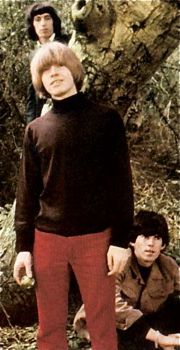 The open-and-shut ruling that Rolling Stones guitarist Brian Jones died of “misadventure” is getting another look from British police. Fans have long suspected the rock star was murdered in 1969.
The open-and-shut ruling that Rolling Stones guitarist Brian Jones died of “misadventure” is getting another look from British police. Fans have long suspected the rock star was murdered in 1969.
Police in the southeast county of Sussex police confirmed Aug. 31 that they had received new information on the mysterious death and were re-examining the 40-year-old case. The ruling of “death by misadventure” basically meant the troubled rock musician drowned while under the influence of drugs and alcohol.
“These papers will be examined by Sussex Police but it is too early to comment at this time on what the outcome will be,” a spokesman said. The review does not necessarily mean there will be a full new investigation.
Interest in the death was renewed four years ago with the release of the movie “Stoned” (aka “The Wild and Wycked World of Brian Jones”). The work of “historical fiction” suggested Jones was killed by a builder over a debt. Several books have claimed that the worker, Frank Thorogood, killed Jones and there are reports he confessed as he was dying.
Circumstances surrounding the incident are as complicated as they are mysterious, according to U.K. journalist Scott Jones, who spent several years researching the Brian Jones death. Jones (no relation) reportedly was the journalist who turned over 600 documents on the case.
In 2005, the investigation was reopened after a 150-page report on the Brian Jones case came from a team of investigators working with a fan club and one of guitarist’ ex-girlfriends.
 Jones had been dismissed from the Stones weeks before his death, largely because of his drug-addled lifestyle. (The photo at right shows his condition at the “Rock and Roll Circus
Jones had been dismissed from the Stones weeks before his death, largely because of his drug-addled lifestyle. (The photo at right shows his condition at the “Rock and Roll Circus” filming.)
Jones was allowed to announce the departure, saying: “I no longer see eye-to-eye with the others over the discs we are cutting.” Jones, who started the band and named it as a tribute to Muddy Waters, objected to the Stones’ shift away from the American blues music he loved.
Despite his rep as a blues purist, Jones brought numerous unusual instruments into the band’s late-’60s recordings, such as the sitar, tambura, dulcimer, mellotron, theramin and harpsichord. His playing loomed large on the Stones’ 1967 psychedelic album “Their Satanic Majesties Request,” which was seen as a half-hearted response to the Beatles’ “Sgt. Pepper’s Lonely Hearts Club Band” (No. 4 on our list of the top psychedelic albums.)
Brian Jones also played a key early role in the introduction of world music into rock, recording the Moroccan music that formed the album “Brian Jones Presents the Pipes of Pan at Joujouka.”
Jones is also remembered for his role in fashion, leading the way for many British musicians, especially in the psychedelic music era. He dressed to blow minds while blowing his own on dope.